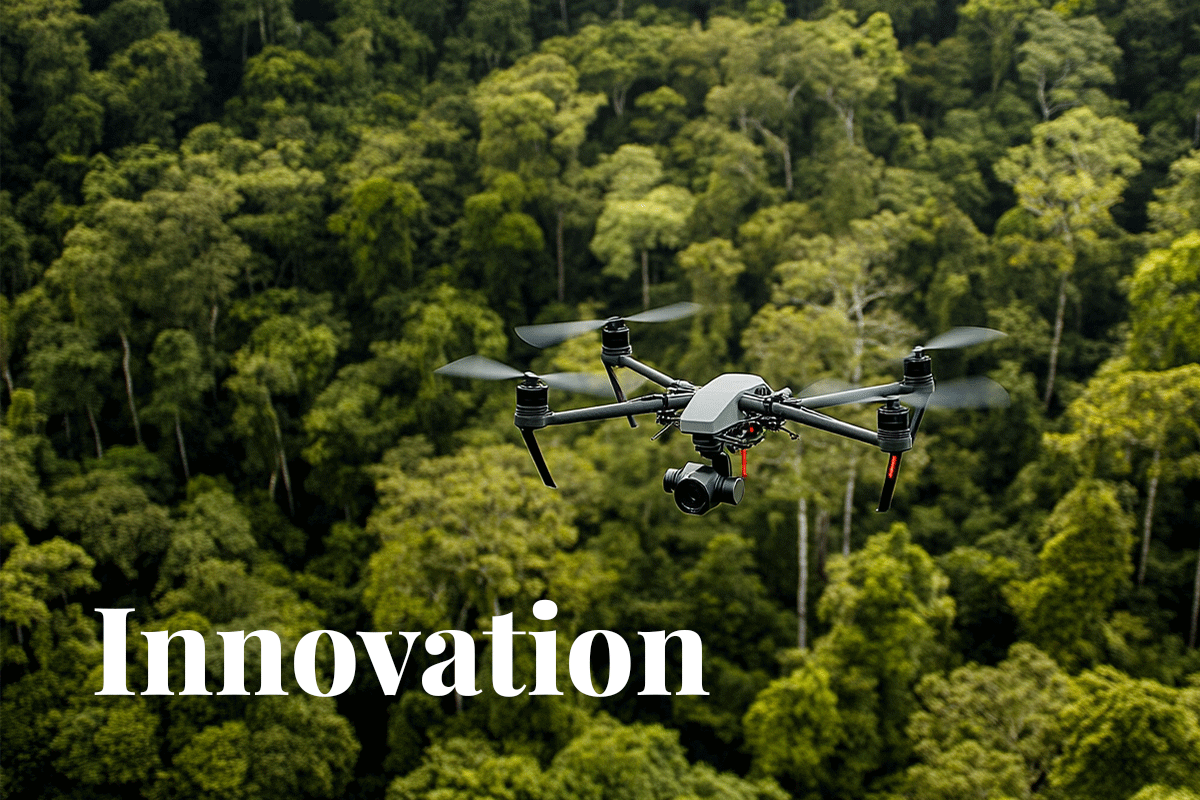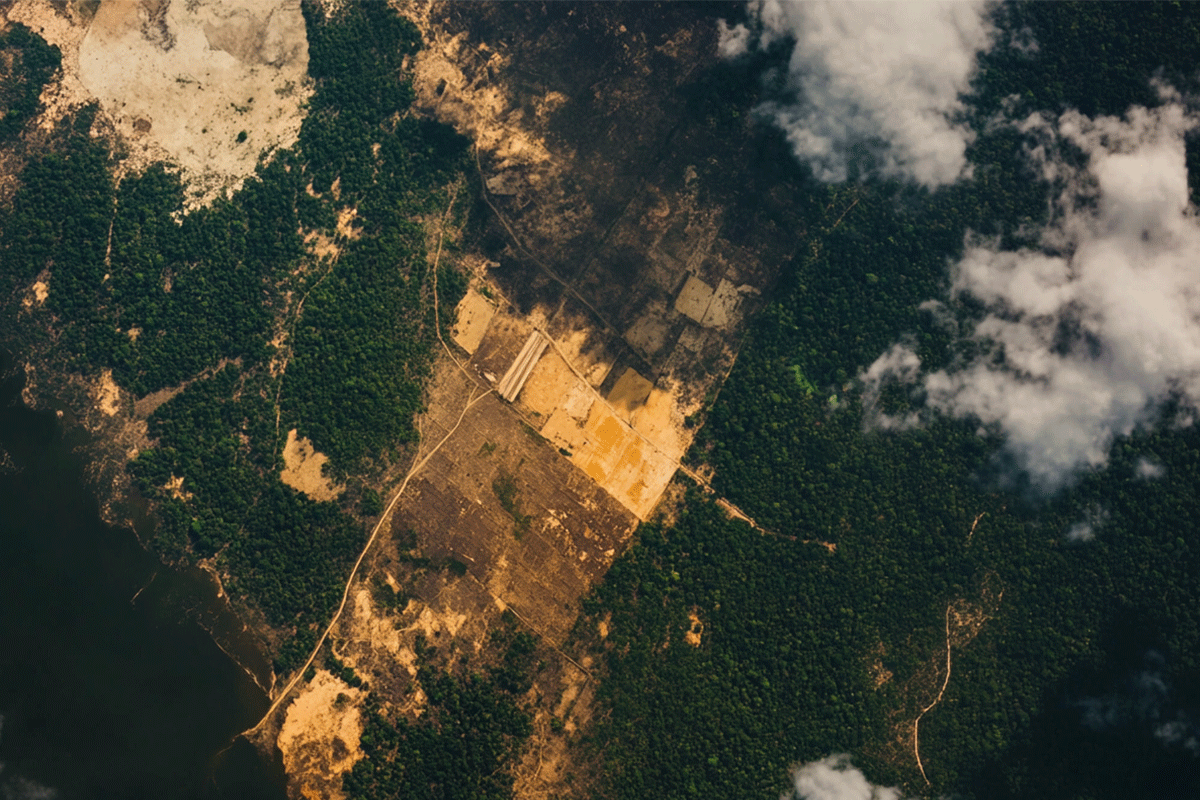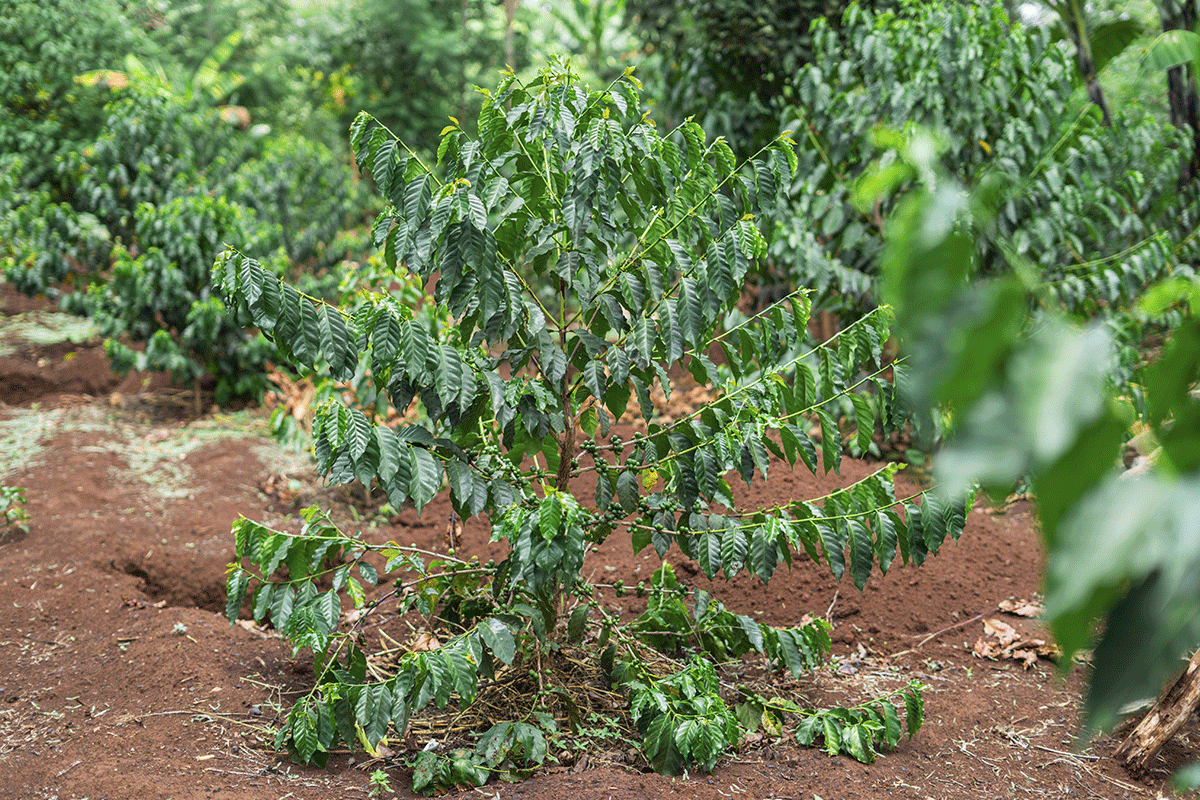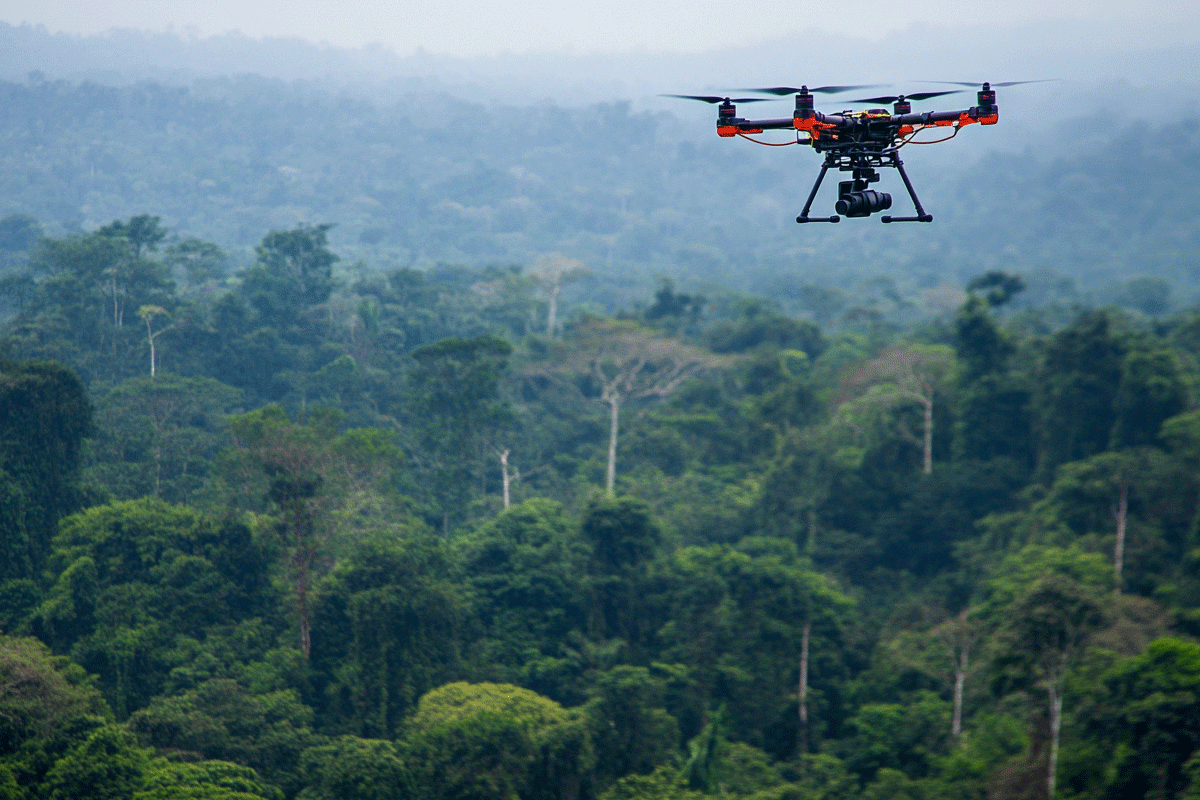In 2024, sustainability continues to be a primary focus, with innovations set to reshape the way we manage and protect the environment. While topics like renewable energy and electric vehicles often dominate technological sustainability conversations, the realm of tech in carbon projects is quickly rising as a vital component of environmental action. These projects focus on capturing atmospheric carbon and reducing emissions through nature-based solutions, and emerging technologies are making them more efficient, scalable, and impactful.
 Advanced drones identify deforested areas for reforestation. AI generated image.
Advanced drones identify deforested areas for reforestation. AI generated image.
At DGB Group, we leverage cutting-edge technologies to ensure our nature-based carbon projects deliver measurable, lasting benefits. As industries, governments, and individuals seek to meet net-zero carbon goals, technology-driven solutions in carbon sequestration, project transparency, and biodiversity restoration will be essential.
Start your carbon footprint analysis with our advanced tool
Key technology trends in carbon projects for 2024
-
AI-powered carbon monitoring optimisation
In 2024, Artificial Intelligence (AI) will continue to revolutionise the carbon market space, playing a critical role in improving the precision and management of carbon capture efforts. AI systems can analyse vast datasets from reforestation, soil carbon, and marine ecosystems, making it easier to monitor progress and predict outcomes.
AI is also essential in helping project managers optimise resource use, ensuring that the highest possible level of carbon sequestration is achieved. AI-powered tools can assess the health and growth of ecosystems in real-time, providing insights that guide on-the-ground efforts.
AI technology can provide predictive models for how environmental factors—such as soil moisture or temperature—will impact a project’s carbon capture potential. Tools developed by companies like Treefera are using AI to improve carbon offsetting accuracy, reducing uncertainty and making it easier for buyers to verify the impact of their carbon units.
Read more: How to reduce your business’ travel emissions through nature
2. Satellite and remote sensing technologies
Satellite technology and remote sensing have emerged as indispensable tools for carbon project verification. In 2024, these technologies will be further refined, offering more accurate and cost-effective ways to monitor projects. Remote sensing can assess carbon sequestration efforts across large landscapes in real time, from forest restoration initiatives to soil regeneration programs.
 Satellite imagery identifies deforested areas for targeted reforestation efforts. AI generated image.
Satellite imagery identifies deforested areas for targeted reforestation efforts. AI generated image.
Companies and organisations are increasingly turning to satellite imagery and technologies like LiDAR (Light Detection and Ranging) to map forest biomass and other carbon-storing ecosystems. These innovations allow for real-time tracking of changes in forest cover, growth rates, and tree health—key indicators of a project’s success.
Read more: What makes DGB’s reforestation projects unique?
3. Blockchain for carbon unit verification
The carbon market has historically faced challenges in ensuring transparency, preventing double-counting, and verifying the authenticity of carbon units. In 2024, blockchain technology is addressing these issues by offering a decentralised, immutable ledger for carbon unit transactions. Blockchain creates a tamper-proof record that can verify every step in the carbon mitigation process, providing transparency and building trust in carbon markets.
Blockchain technology ensures that every carbon unit (also known as a carbon credit) is traceable from project inception through to retirement, making it easier for buyers to verify that their units represent real, measurable emission reductions. This is critical for building a credible and transparent carbon market.
Read more: The power of DGB Group’s high-quality carbon projects in Kenya
4. Innovations in nature-based solutions
Nature-based solutions, such as reforestation, peatland restoration, and regenerative agriculture, are at the heart of many carbon projects. In 2024, new technologies will further enhance the scalability and efficiency of these initiatives, making them even more integral to global carbon reduction strategies.
 One of the multiple trees planted for the DGB Hongera Reforestation Project, Kenya.
One of the multiple trees planted for the DGB Hongera Reforestation Project, Kenya.
Here are some of the key carbon project strategies supported by emerging technologies:
-
Regenerative agriculture: By improving soil health, reducing chemical inputs, and promoting biodiversity, regenerative agriculture increases the amount of carbon stored in the soil. Emerging technologies, including soil sensors and AI-driven models, help farmers and project developers monitor and maximise their soil’s carbon capture potential.
-
Reforestation: Reforestation involves planting trees in deforested or degraded areas to absorb carbon dioxide from the atmosphere. Trees act as long-term carbon sinks, sequestering carbon as they grow. Innovative tools like drone-based tree planting and satellite monitoring are enhancing the efficiency and scale of reforestation projects, making them more effective in addressing carbon emissions.
-
Peatland restoration: Peatlands store vast amounts of carbon, making their restoration a top priority. New methods, such as rewetting degraded peatlands and monitoring via drone and satellite technologies, are helping restore these critical ecosystems and ensure they continue to serve as carbon sinks.
Read more: The Science Based Targets initiative and carbon offsetting: striking the right balance
5. Smart water management in carbon projects
Water management is essential to the success of carbon projects, particularly in regions prone to drought or water scarcity. In 2024, smart water management technologies will help optimise water use in reforestation and regenerative agriculture projects, ensuring these ecosystems thrive and capture maximum carbon.
Using sensors and IoT devices, smart irrigation systems can monitor soil moisture and automatically adjust water usage to meet plant needs. These systems are critical for ensuring that tree planting and other reforestation projects can thrive in water-scarce areas while minimising water waste.
Read more: 10 Agricultural techniques for water conservation
6. 3D Mapping and drones for forest monitoring
Another innovative trend for 2024 is the use of drones and 3D mapping technologies to monitor carbon projects. These technologies provide detailed, high-resolution images of forests and other ecosystems, helping project managers accurately assess tree growth, health, and biodiversity.
 An AI-powered drone surveys the Amazon Rainforest to identify reforestation zones. AI generated image.
An AI-powered drone surveys the Amazon Rainforest to identify reforestation zones. AI generated image.
Drones equipped with specialised cameras and sensors can capture data on forest structure, tree height, and canopy density, providing a clear picture of how much carbon an area of land is likely to sequester. This real-time data is invaluable for adjusting management strategies and maximising a project's carbon capture potential.
Read more: Every tree counts: monitoring the DGB Hongera Reforestation Project
The future of carbon projects: a tech-driven path to sustainability
The trends emerging in 2024 reflect a broader shift toward the integration of technology into carbon projects. From AI-powered monitoring systems to blockchain-based transparency tools, new advancements are paving the way for a more efficient and scalable approach to carbon sequestration.
At DGB, we are committed to advancing sustainability through the use of cutting-edge technology in our carbon projects. By leveraging AI, satellite monitoring, and data analytics, we drive nature-based carbon projects that make a real difference, supporting ecosystems and communities around the world.
Schedule a call with us to discover our straightforward three-step guide to making your business more sustainable. At DGB, we provide comprehensive carbon reduction and compensation solutions to organisations worldwide, for businesses of all sizes. Here's how it works:
-
Calculate your carbon emissions: For businesses large and small, the first step is calculating your carbon footprint. With DGB's user-friendly Carbon Calculator, you'll easily assess your environmental impact and start identifying areas for improvement.
-
Compensate for and reduce your emissions: We help you develop a customised roadmap for reducing and compensating for emissions, identifying potential risks and opportunities along the way. Through our high-quality carbon units from internationally verified projects, you can invest in nature and move towards a more sustainable future.
-
Showcase and report on your positive impact: Once your carbon footprint is addressed, we assist you in the reporting process. You'll be able to clearly communicate your environmental achievements to teams, customers, and stakeholders, highlighting your commitment to sustainability.
Explore our sustainable solutions to compensate for your carbon footprint




